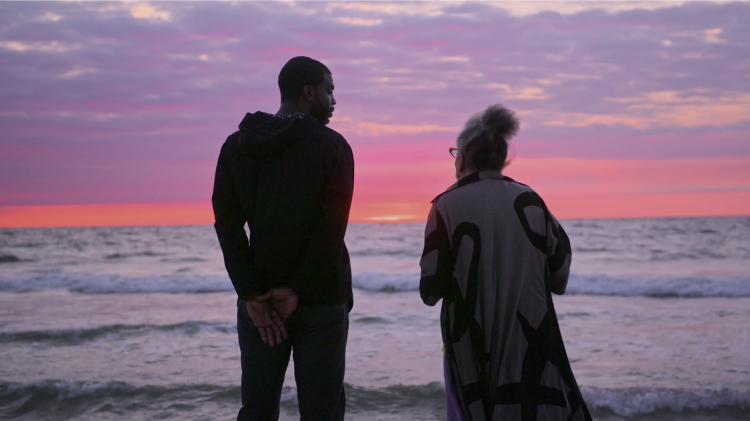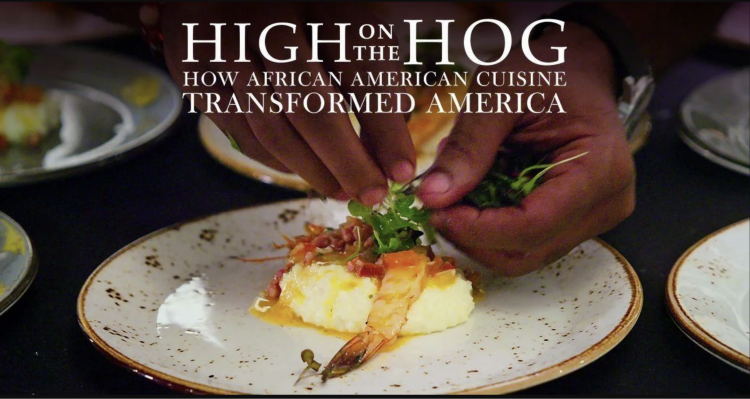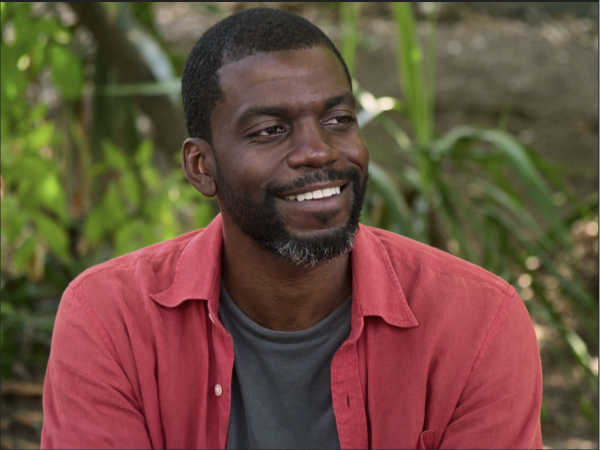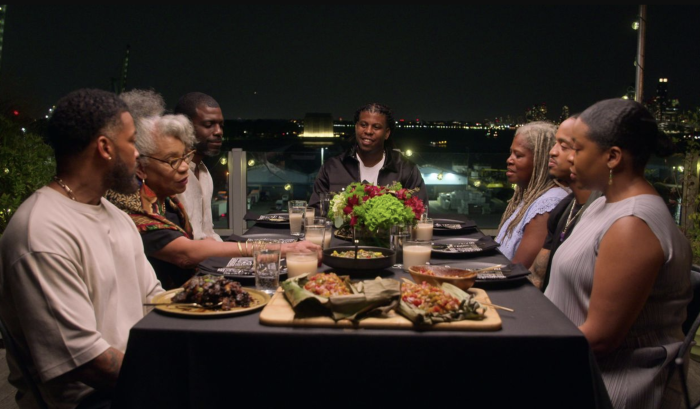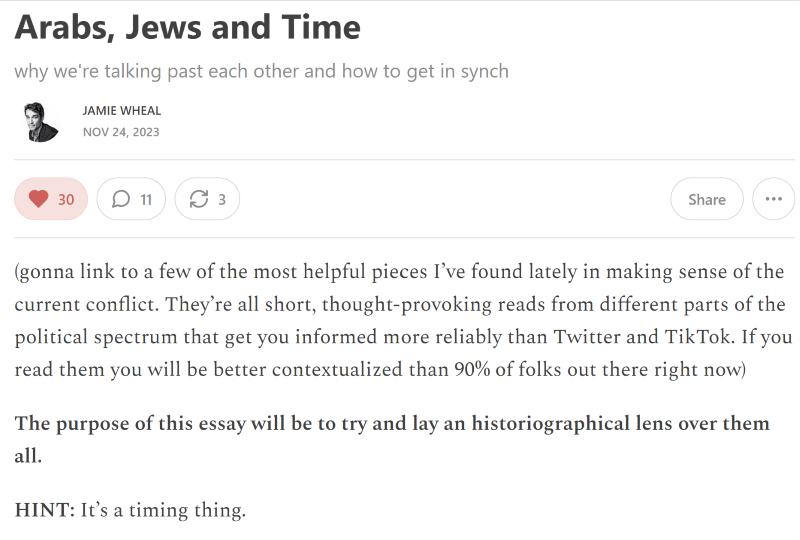Leadership Lessons of the Week (Thanksgiving Edition)
Stephen Satterfield and Dr. Jessica Harris on Season 2 of High on the Hog
Some days of downtime after an intimate Thanksgiving dinner with Jewel and her first-born Nat was most welcome. I hope that amid the conflicts that drive mainstream and social media, and the wars in Ukraine and the Middle East, that you had good times with family and for yourself too.
Speaking of food, we were overjoyed to run across Season 2 of High on the Hog: How African American Cuisine Transformed America on Netflix last week. Jewel wrote about the first season of this excellent series, which, this time, integrated the culture of food with politics and activism from the early 20th century great migration from the South to Chicago to the Civil Rights Movement in Atlanta to today’s chefs and influencers in New Orleans and New York. As in the first season, host Stephen Satterfield honors the legacies of unsung pioneers that contributed to America’s creative culinary history but also includes conversations with “living elders,” such as three of the student organizers who, as teenagers, staged sit-ins and a 98-year-old Pullman Porter, who shares how he maintained dignity amid racism.
Satterfield, a chef, media entrepreneur, and sommelier, gives ample room for his guests, their history and struggles, and the cities to shine. His mentor, food anthropologist Dr. Jessica Harris (from whose book the series title derives), provides ancestral wisdom and soulful scholarship in the first and final episodes of the four-part new season.
You can watch the trailer for the series here.
Curated Reading List: The Middle East Conflict
In my essay a month ago, “Tragic Complexities and No Good Choices,” I discussed how I, like many others, struggled to understand and unwrap the moral to humanitarian issues of the current war between Israel and Hamas, ending up with more questions than answers. I continue to read and listen widely, all to pursue the implications of wise leadership and the prospect of peace in the Levant more deeply.
Last week, author and founder of the Flow Genome Project Jamie Wheal released an essay on his Substack:
As you’ll see, Wheal’s curation isn’t set in any single ideological groove. Like jazz musicians trading fours in healthy antagonistic cooperation, the point-counterpoint, statement-counterstatement of the following stories allows for passion and reason to swing in democratic dialogue.
“Like many folks, I’ve been trying to keep tabs on the tragic unfolding in the Levant. And then tracking the backlash to the backlash, and the refutations of the accusations.
Which is almost as tragic as the physical violence itself.
(especially as our only hope to get out of this mess is a diplomatic and humanitarian response brokered by benign powers outside the kinetic conflict itself. But we’re as much at odds as the fighters in the streets are)
In particular, I read several pieces lately that highlight a mismatch in chronology that plays a real part in how we’re talking past each other.
First, a bit in the New Yorker from a hardcore Zionist grandma who oneups the Palestinian chant “from the River to the Sea” stumping for a united Jewish homeland “from the Euphrates to the Nile.”
Which, you know, (checks map) would be slightly problematic to execute, even if she’s confidently claiming Divine Title to the land from three thousand years back.
Then there’s Sam Harris’ recent polemic where he argues that actually, you don’t need to know anything about the Arab-Israeli conflict to understand what happened on Oct. 7th because Jihadis gonna jihad regardless of what country they’re in or who they’re blowing to bits (including a disproportionate number of fellow Muslims).
Again, watch Hotel Mumbai or read a book about the Islamic State so that you can see jihadism in another context—where literally not one of the variables that people imagine to be important here is present. There are no settlers or blockades or daily humiliations at checkpoints or differing interpretations of history—and yet we have same grotesque distortion of the spiritual impulse, the same otherworldliness framed by murder, the same absolute evil that doesn’t require the presence of evil people, just confused ones—just true believers.
And then there are the counterarguments like Eric Levitz in New York Mag Sam Harris’ Fairy Tale Account of the Israel Hamas Conflict which takes Sam to task for his broad brush dismissal of the last hundred years of highly relevant backstory.
Followed by a thoughtful historical take in The Atlantic, The Decolonization Narrative is Dangerous and False resists the clumsy application of White Colonizer/Brown Colonized to a situation with plenty of genetic sameness, cultural mixing, and overlapping tales of horrendous oppression. It’s always more complicated than simple binaries ever allow.”
Jamie follows with a comparative exercise via time: diachronic (change over time), synchronic (a situation at a specific point in time), and achronic (timeless). It’s brilliant—I urge you to check it out for yourself, and take note of his excellent example of a “polychronic” perspective.
Next Episode of Straight Ahead: Are Jews White?
Although our conversation with Terrence Johnson, Harvard Professor of African American Religious Studies, took place before the current armed conflict in Israel-Palestine—thankfully on pause as hostages are being released—we touch on the issues at play there as they intersect with the relationship between Jewish Americans and Black Americans. In the previous episode featuring economist and public intellectual Glenn Loury, my co-host Aryeh Tepper dismissed the notion that Jews are “white,” declaring that such a concept is found nowhere in the Jewish tradition. We continue the pursuit of that topic in the coming episode, which will be released this Thursday, Nov. 30th at 4 pm ET.
If you have yet to do so, please subscribe to the podcast here on YouTube and other podcast platforms. As we bring 2023 to a close, here’s wishing you a great week.

